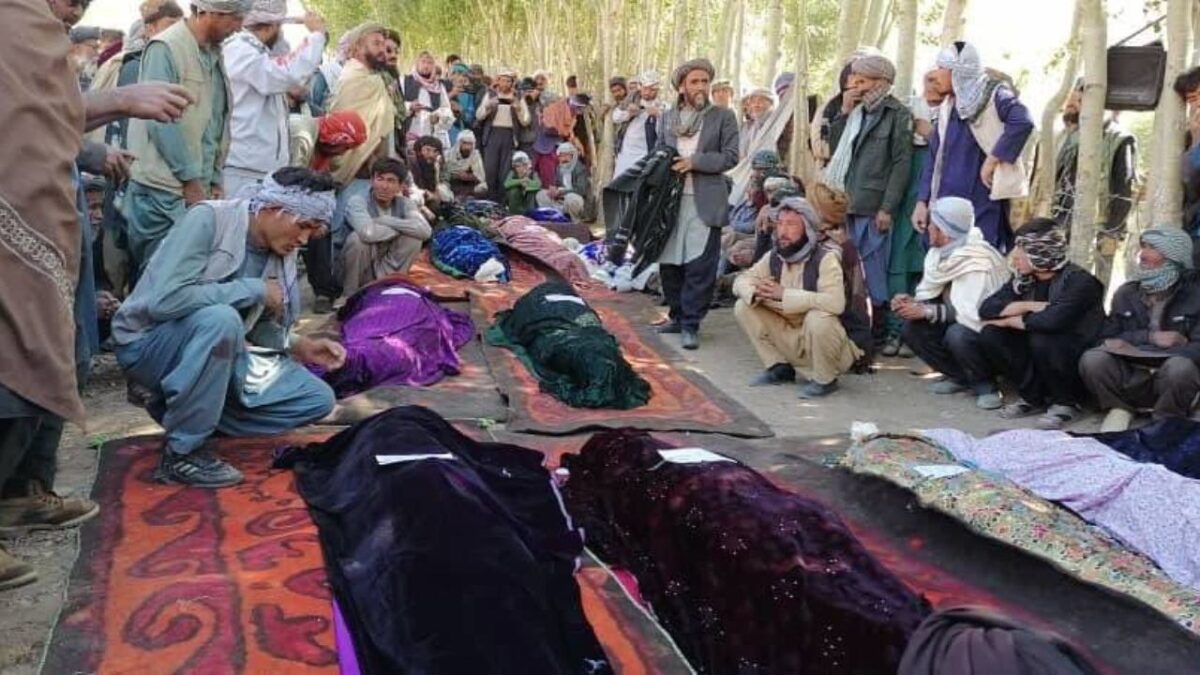Relatives of the 14 Hazara citizens killed in last week’s mass shooting in Daikundi plead for security guarantees, saying their lives are now filled with fear and anxiety.
Two family members of the victims told Amu that their community is living “in constant fear.” One man, who lost nine members of his family in the attack and asked to remain anonymous, described the terror that has gripped their lives.
“The perpetrators must be arrested. No one can leave their homes. The killers must be brought to justice. This is a desolate area, and we ask the government to send security forces. We have witnessed too many killings in this region. There is no one left; the breadwinners of all the families have been shot,” he said.
Another relative of the victims called for an end to what he described as the “genocide of Hazaras.”
“It was a tragedy, a heartbreaking disaster. We call on the government and the international community to provide security for our people and officially recognize the genocide of Hazaras so that such attacks can be prevented,” he said.
The Hazara and Shia communities in Afghanistan have increasingly become prime targets for ISIS-Khorasan, the local branch of ISIS. Families of the victims are now appealing to the international community to intervene and prevent further violence.
“We hope that the genocide of Hazaras will be stopped. We have no security—neither at home, nor at work, nor anywhere else. We urge that security be provided for all Hazaras as soon as possible,” said Saazish, a resident of Kabul.
The attack has sparked outrage both within Afghanistan and internationally.
In response to the killings, the British Deputy Foreign Minister said the global community must do more to support minority groups in Afghanistan.
ISIS-Khorasan has claimed responsibility for the attack.
Earlier, the United States, the United Nations, and Amnesty International condemned the attack and called for the protection of Hazaras and Shia communities in Afghanistan.





